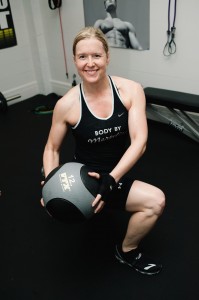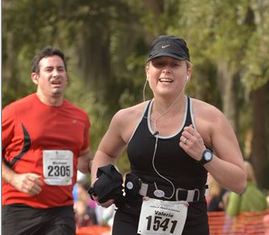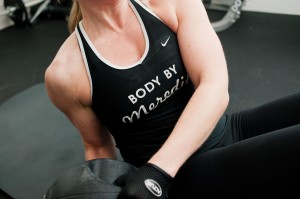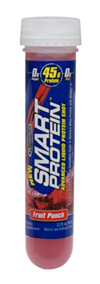Is Extreme Dieting And Exercise Worth It? My Personal Journey – With Photos

Dr. Val "After" Photo #1
I just completed 8 weeks of what I’d call “extreme dieting and exercise.” I don’t mean dangerous starvation and constant exercise, I mean the hardest “medically safe” amount of diet and exercise possible. It involved about 3 hours of exercise per day (6 days/wk), along with a calorie-restricted diet of 1500 calories/day (no refined carbs, only healthy fats, relatively high protein). My exercise consisted of heavy weight lifting, kettle bell sets, kickboxing, and sprints on the bike, summit trainer, and on an outdoor track, with long walks each afternoon. Trust me when I say – I pushed myself to the very limits of what my body could handle without becoming sick or injured. I did this with the help of my dear friend and trainer Meredith Deckert.
Why on earth would I do something so extreme? Well, first of all, I wanted the “right to bare arms” on my wedding day. I just woke up and realized I was getting married in 8 weeks and that I’d have photos of the event memorialized for my future kids and grand kids… so the “bat wings” had to go (you know what I’m talking about, ladies), and the time till “lift off” was pretty short – hence the need for maximum effort.
Secondly, I was scientifically curious to know what a “best case scenario,” two month, physique optimization strategy might produce. I knew I wouldn’t cheat on the diet or fall off the exercise wagon, so at least I could be sure that results were based upon strict adherence. Self-reports of diet and exercise regimens are notoriously inaccurate, so this doubting Thomas had to see for herself! (Of course n=1 in this experiment and won’t correlate exactly with others’ experiences due to differences in starting fitness, body fat, age, genetics and gender).
And Thirdly, I wanted to experience (first hand) what is possible so that I could empathize with my patients who were trying to lose weight, and provide personal anecdotes of encouragement. Since America’s biggest health challenge (pun intended) is obesity, I feel obliged to do my part to model lean living. Otherwise, what right do I have to teach others what to do? (Note that heavier physicians are less likely to educate overweight patients about weight loss).
So what did I learn? Each of these probably merits its own blog post, so I’ll summarize briefly and dig into the details with you soon…
1. Calorie math doesn’t necessarily work with the bathroom scale. We’ve all heard that a pound of fat equals 3,500 calories, so that if you decrease your calorie intake (or increase your calorie burn) by that much, you WILL lose a pound on the scale. That has not been my experience (I lost an average of only 30% of what the scale should have shown based on the math). I have some theories as to why that might be (which I’ll share later), but suffice it to say that if you are “doing everything right” and the scale is not rewarding you – take heart!
2. Weight training improves how you look MUCH more effectively than cardio. Before my extreme diet, I was running 1/2 marathons and spending hours on the spin bike. I was in excellent cardiovascular shape, but I had a relatively high percent body fat (about 30%) and I was certainly not getting “skinny” from all the running. I was actually losing muscle and looking softer and more “out of shape.” Dialing down the cardio and increasing the weight training had a rapid, visible impact on how athletic I looked.
3. Your leaner self may not look the way you think it will. When I first began my weight loss journey, I imagined that I would slowly melt away all the excess fat to reveal a lovely ballerina inside. What I found was that after the fat was gone, I wasn’t a ballerina at all. I looked a lot more like a wrestler! People really have different genetically determined body types – and no amount of diet and exercise will make us look like someone else. We’ll just look like our best selves, which is ok! Don’t fall into the trap of thinking that success only looks like a Sports Illustrated swimsuit model. After all, Olympic athletes all have very different bodies, and are at the top of their respective games! (This fun, height and weight database shows how you compare to recent Olympians.)
4. Clothing size is the most helpful measure of success. After 2 months of intense diet and exercise the scale only changed by about 6 lbs. The body impedance analyzer told a little different story (the InBody 520 estimated that I had lost about 10 lbs of fat and gained 5 lbs of muscle with an overall percent body fat loss of about 4%.) But the truth is, that nothing measured my success as well as clothing. I dropped nearly two dress sizes and had to buy a new wedding dress a week before the event! So if your scale isn’t showing you love, what are your jeans saying? Listen to them.
Conclusion: In my experience, the best a slightly overweight, middle aged woman can do (safely) in 8 weeks is lose 10 lbs of pure fat and gain 5 lbs of muscle. It is extremely difficult to achieve that much, and I would highly recommend doing it over a longer period of time. Is the pain worth the effort? Here are my “before” and “after” photos. What do you think?
Before: (151 lbs)

After (145 lbs):



 I’m feeling rather nauseated today. This is my fifth day of a high-protein, low-fat, low-carb diet, and I have already developed a deep-seated hatred of egg whites. My regimen includes uncomfortable quantities of grilled chicken breast, fat-free cottage cheese, Greek yogurt, and egg protein, occasionally garnished with a lettuce leaf or perhaps a blueberry. Just yesterday I had to drink a plastic test tube of liquid protein to meet my goals (see offending product image to the left). It looked like a blood-tinged albumin sample, and tasted like orange flavor crystals with a splash of soy sauce.
I’m feeling rather nauseated today. This is my fifth day of a high-protein, low-fat, low-carb diet, and I have already developed a deep-seated hatred of egg whites. My regimen includes uncomfortable quantities of grilled chicken breast, fat-free cottage cheese, Greek yogurt, and egg protein, occasionally garnished with a lettuce leaf or perhaps a blueberry. Just yesterday I had to drink a plastic test tube of liquid protein to meet my goals (see offending product image to the left). It looked like a blood-tinged albumin sample, and tasted like orange flavor crystals with a splash of soy sauce.







